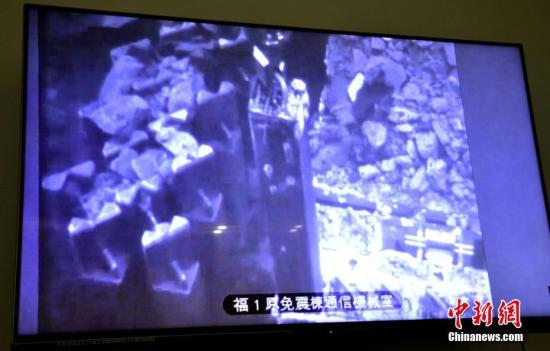China News Service, October 17th. According to the "Central News Agency" report, on the issue of whether to discharge nuclear sewage from the Fukushima Daiichi Nuclear Power Plant into the sea, Japanese Minister of Economy, Trade and Industry Hiroshi Kajiyama said on the 16th that he would deepen the review and take responsibility. Final conclusion.
On March 11, 2011, the "March 11" Great East Japan Earthquake occurred in Japan, which triggered a huge tsunami and the Fukushima nuclear disaster, killing tens of thousands of people.
Currently, more than 1 million tons of nuclear sewage is stored in the hinterland of the Fukushima Daiichi Nuclear Power Plant.
Data map: News on April 15, 2019, the fuel removal operation of Unit 3 of the Fukushima Nuclear Power Plant in Japan started.
According to reports, the so-called nuclear sewage is the waste water remaining after cooling the nuclear reactor. Although the Fukushima Nuclear Power Plant has been processing related nuclear sewage, one of the radioactive substances called "tritium" is difficult to remove, which leads to nuclear sewage. Continue to pile up.
In February 2020, the Japanese government unit compiled a report, proposing the actual practice of diluting nuclear sewage to a concentration below the national standard, and then discharging it into the sea or steam before being discharged into the atmosphere; the government listens to the opinions of local, agricultural, forestry and aquatic industries. Conduct a review.
On October 16, Japan’s Minister of Economy, Trade and Industry Kajiyama said at a press conference that, first, he will sort out the opinions obtained through various opportunities so far, and carry out the compilation work. “In the case of in-depth review within the government, it will be done in due time. Point to take the responsibility of the government and put forward the final conclusion."
However, it is still unknown when the conclusion will be reached. Kajiyama only said, "I will sort out the opinions obtained and deepen the discussion."
At the same time, some Japanese media said that the Japanese government will decide to discharge nuclear waste water into the sea before the end of October. Although this practice has caused concerns among local fisheries, the Japanese government is considering storing nuclear waste water in nuclear power plants. Affect future waste furnace operations.
The report also said that it will take some time to build related equipment. It is estimated that if nuclear sewage is discharged into the sea, it will be 2022 at the earliest.

